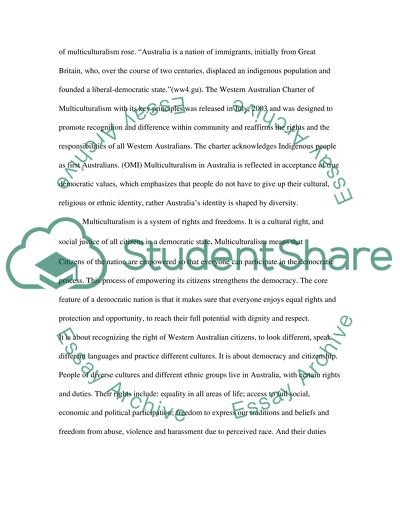Cite this document
(“Multicultural Society of Australia Essay Example | Topics and Well Written Essays - 1500 words”, n.d.)
Retrieved from https://studentshare.org/sociology/1528772-multicultural-society-of-australia
Retrieved from https://studentshare.org/sociology/1528772-multicultural-society-of-australia
(Multicultural Society of Australia Essay Example | Topics and Well Written Essays - 1500 Words)
https://studentshare.org/sociology/1528772-multicultural-society-of-australia.
https://studentshare.org/sociology/1528772-multicultural-society-of-australia.
“Multicultural Society of Australia Essay Example | Topics and Well Written Essays - 1500 Words”, n.d. https://studentshare.org/sociology/1528772-multicultural-society-of-australia.


